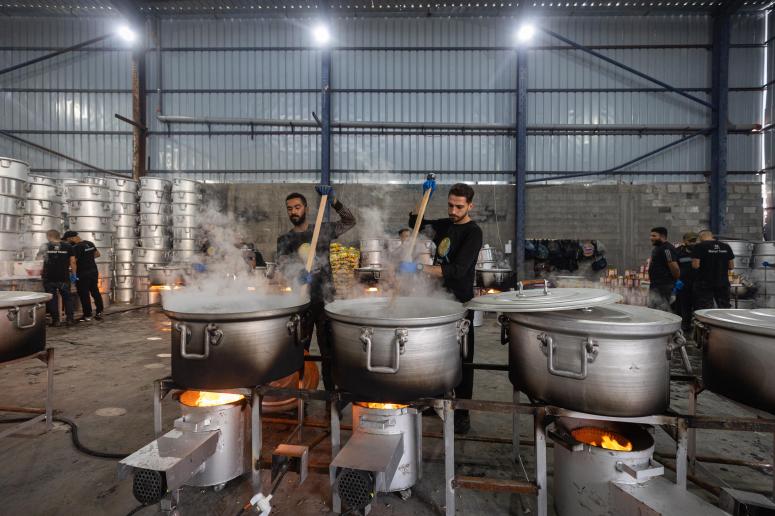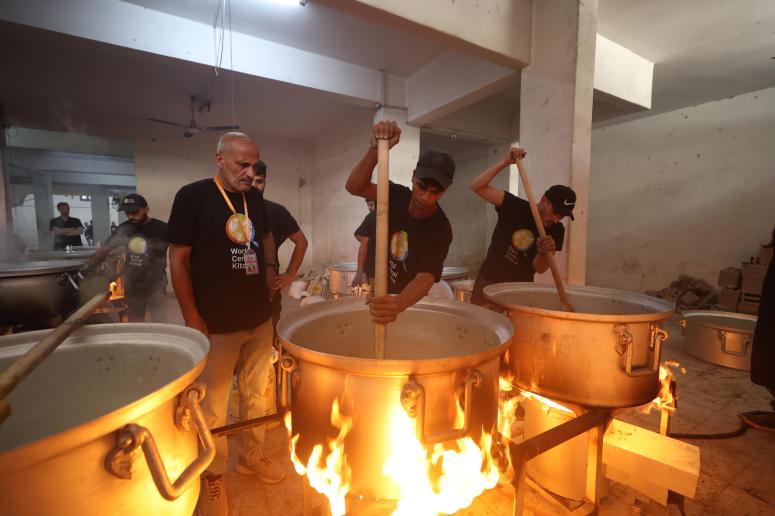Your Gaza Questions Answered | Updated January 2026
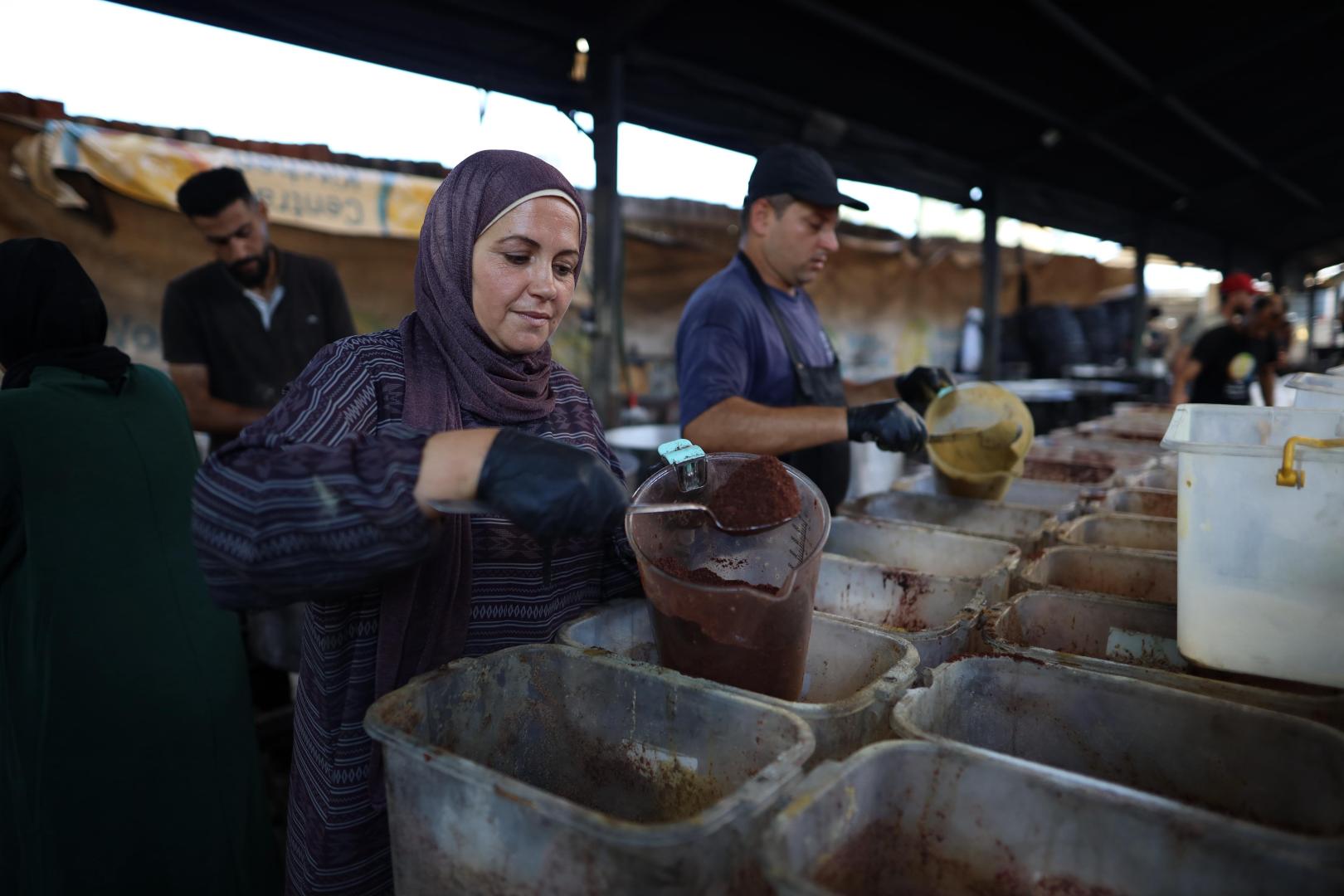
We know the situation in Gaza has left our World Central Kitchen community with a lot of questions – we want to try to give you all the insight we can from our on-the-ground operations. These answers reflect the most accurate information available about our work in Gaza as of January 6, 2026. The situation on the ground changes rapidly—access, needs, and operations can shift day to day. We are committed to sharing clear, up-to-date details about our response. You can always find more about our operating status and recent work here.
Is World Central Kitchen actually getting food into Gaza? How?
Yes. WCK is reliably getting food and supplies into Gaza, allowing our teams and partners to cook and distribute meals consistently to families and medical facilities.
Improved access has enabled regular entry of ingredients and supplies that we use to support communities across Gaza with meals, bread, water, and other essential needs. While access remains subject to coordination and security considerations, the ability to move supplies more predictably has strengthened daily meal operations and allowed us to better plan distributions.
How are the current restrictions on NGOs impacting your work?
Unrestricted humanitarian access is essential to meeting urgent needs at scale. When aid organizations can move food, supplies, and staff without unnecessary limitations, we are able to respond faster, reach more families, and plan operations that are reliable and sustained over time. Predictable access saves lives.
At present, WCK is able to provide meals to families across Gaza. Current restrictions imposed by Israel are not impacting our operations at this time. Maintaining consistent access remains critical—not only for WCK, but for the broader humanitarian response.
What is the current level of need in Gaza?
Though improved relative to the situation prior to the current ceasefire, the level of need in Gaza remains acute. Families are facing severe food insecurity, displacement, and limited access to basic services after months of crisis. WCK is presently preparing about 800,000 meals every day in Gaza, in addition to 400,000 pita rounds. But even this is not enough. We are building toward 1 million daily meals as we endeavor to meet the current humanitarian demand.

How has the ceasefire affected WCK’s work in Gaza?
The ceasefire has allowed WCK to deliver aid more consistently and with far fewer interruptions than in previous months. Reduced insecurity has made it possible for our teams and partners to move food, supplies, and staff more reliably, ensuring families can depend on daily meals. Importantly, the ceasefire has also enabled the expansion of our kitchen network, including into parts of northern Gaza that were previously too dangerous to access, increasing our overall reach.
I heard WCK stopped cooking because of shortages. What’s your status now?
This was true for a limited period of time in late spring and early summer 2025. As of January 1, 2026, however, we are currently cooking hot meals at six large capacity Field Kitchens across Gaza, as well as baking bread at multiple bakeries and distributing clean potable water. We are also supporting dozens of community kitchens, which use our aid supplies to cook for their most vulnerable neighbors.
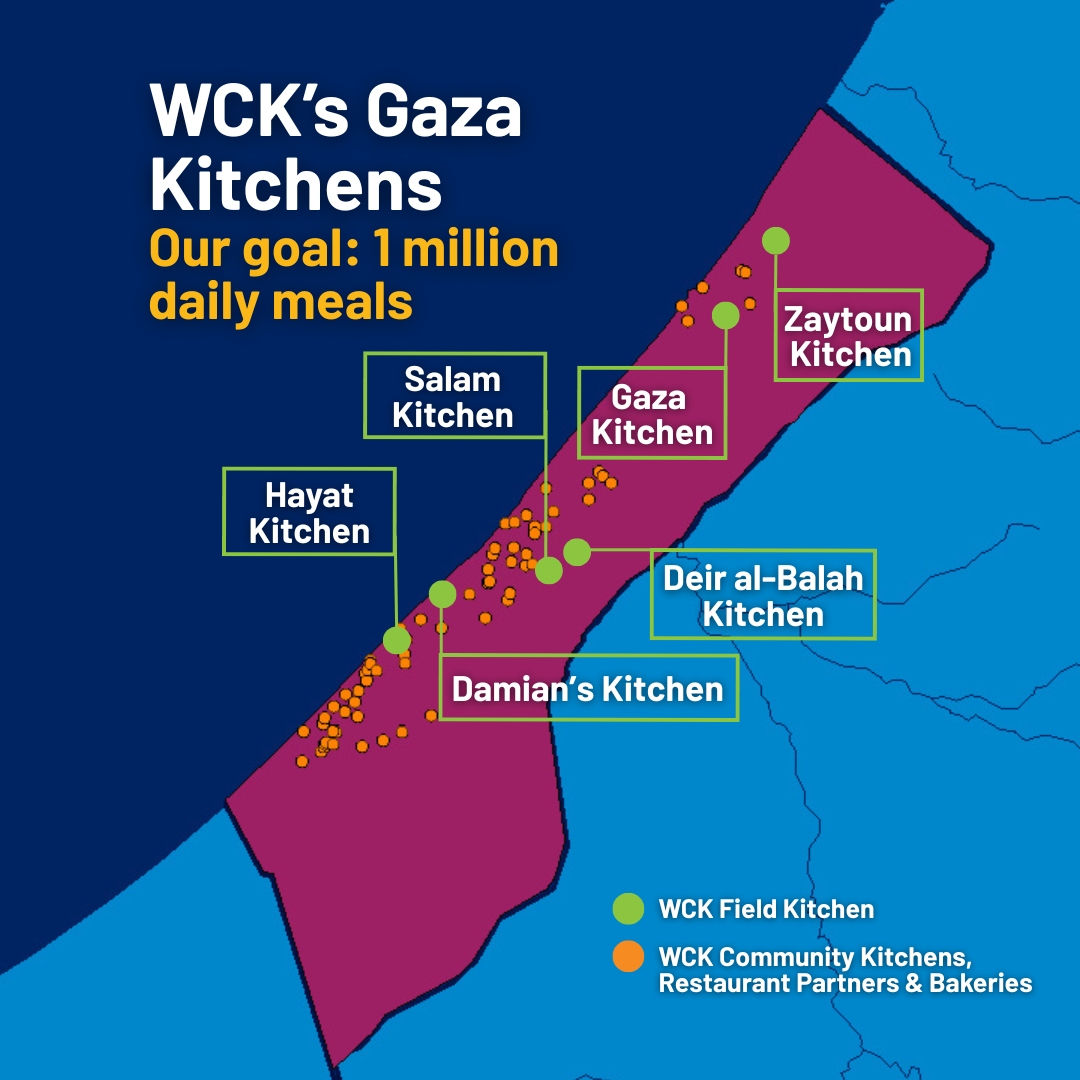
So now you’re able to cook and serve meals like before the 2025 restrictions?
Over the past months, we’ve steadily scaled up from 90,000 to around 800,000 meals daily, more than we were serving before being forced to halt operations. This is possible thanks to the tireless efforts of teams at our Field Kitchens, our network of Community Kitchens, and restaurant partners. Our teams are pushing to expand further, with the goal of reaching 1 million meals daily.
Combining different models and approaches to distributing meals, all grounded in true community-led approaches, has been critical for us to get meals to the people who need them.
How has the peace process affected WCK’s work?
Progress toward peace does not mean an immediate reduction in need. On the contrary, WCK is cooking more meals than ever in Gaza as we await further phases of the peace process and look forward to our teams remaining deeply committed to supporting families as they begin the long road to recovery. Even as conditions evolve, the need for reliable food support, local employment, and community-led solutions remains critical. WCK will work alongside Palestinian partners to provide meals with dignity, supporting communities not only through crisis, but through recovery and rebuilding as well.

What are the biggest challenges your teams face?
The environment in Gaza, though improved, remains unpredictable and dangerous. In addition, fuel supply interruptions that began in late December 2025 pose a serious risk to the preparation and distribution of hot meals and bread. Fuel is essential for cooking, bakeries, water systems, and transportation. To mitigate this risk, WCK is optimizing fuel use across our operations and securing diverse fuel purveyors to help sustain our response. Finally, the fact that many other humanitarian organizations are not permitted to work in Gaza due to the registration process has reduced the number of actors able to respond.
What is the impact of being able to cook on the WCK team?
In the words of our Response Director for Gaza, Wadhah Hubaishi: “Reaching one million meals a day is not a number—it’s a lifeline. Every meal represents a family that can breathe a little easier. The determination and strength our teams and partners show every single day to reach that goal is extraordinary, and it reflects the spirit ofWCK: showing up, together, when it matters most.”
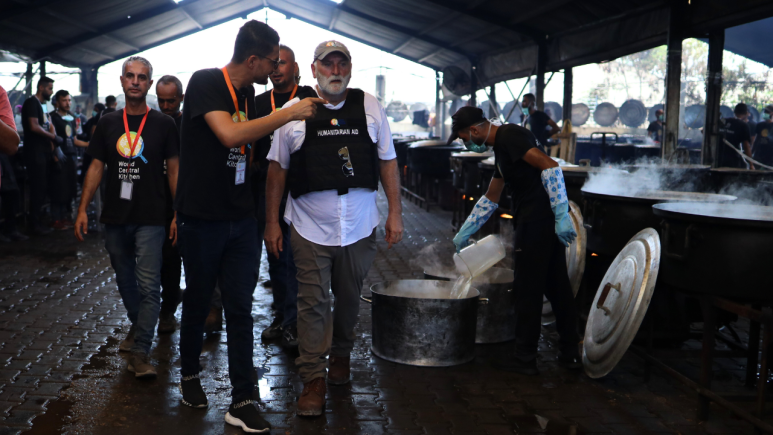
Support our efforts in Gaza
